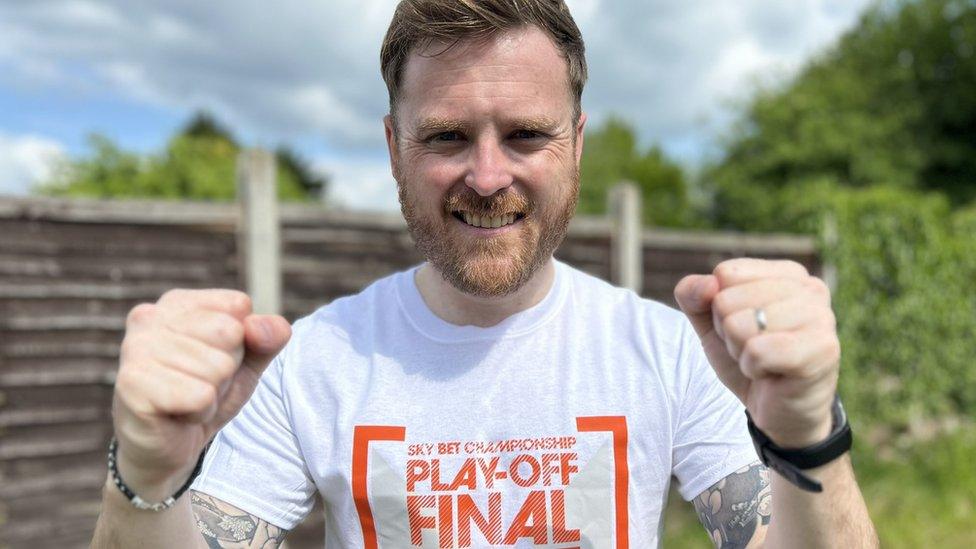Luton Town: Did a football club's success help reduce crime?
- Published
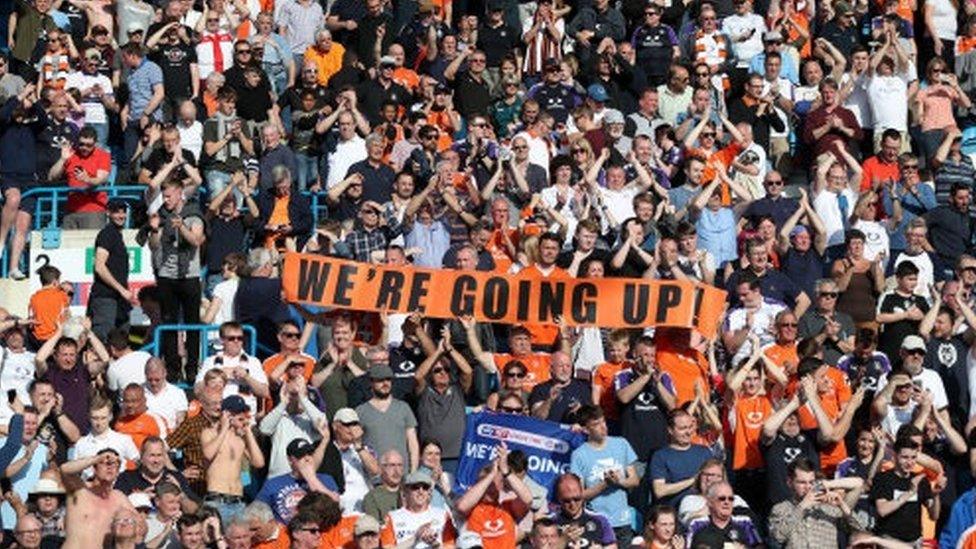
Could Luton Town's promotion and a noticeable drop in crime possibly be related?
Earlier this year Luton Town won promotion to the Premier League. At the same time, crime across the town reduced markedly. Could these two facts possibly be related?
During the Hatters' promotion-winning season, many people living in Luton described how it had "brought people together" as "one big town" and "one big community".
Some said the "feel-good factor" that swept through the town during the club's rise through the league table made them feel both happier and safer. Were they right?
Now that crime data for the periods before, during and after the Hatters' promotion run has been published, the BBC decided to look at what impact, if any, the club's success might have had on crime levels.
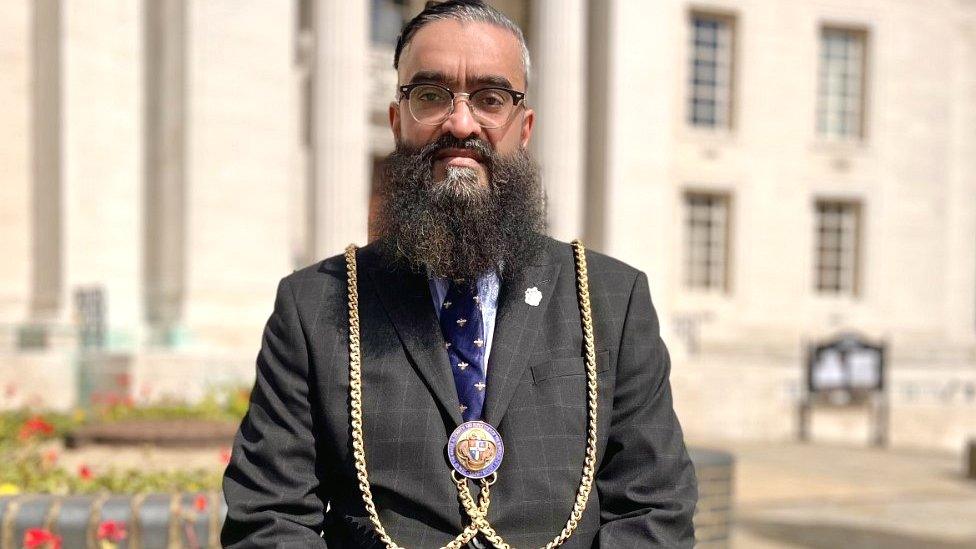
Luton borough councillor and mayor Yaqub Hanif said sporting success had the potential to improve community wellbeing
Overall crime was down every single month on the previous year during the promotion-winning season.
While we do not know the cause of the fall, the figures do not surprise Luton's Labour mayor and Hatters fan, Yaqub Hanif.

"With sporting success, people's wellbeing is improved," he says.
"When England gets knocked out of the World Cup there is often an increase in domestic violence - it makes sense that the reverse might be true."
The number of violent crimes reported in Luton was down 12% year-on-year, criminal damage was down 11% and anti-social behaviour down 10%.
"I've always thought football is really the official religion of this country because it brings people together - it really has a way of unifying people," says Mr Hanif.
"We are a one-club town and it is symbolic of what the town is about."
Bedfordshire Police is more circumspect about the reasons for the fall in crime.
A force spokesman says while there "might be an element of truth" to the suggestion that crime dropped as a result of a town-wide "feel good factor", there are "a lot of other factors to consider".
While the force does not elaborate on what those other factors might have been, the College of Policing says many factors can play a part in cutting crime, including new policing initiatives and increasing the number of officers on the street, external (Bedfordshire has nearly 200 more officers than in 2020, external).
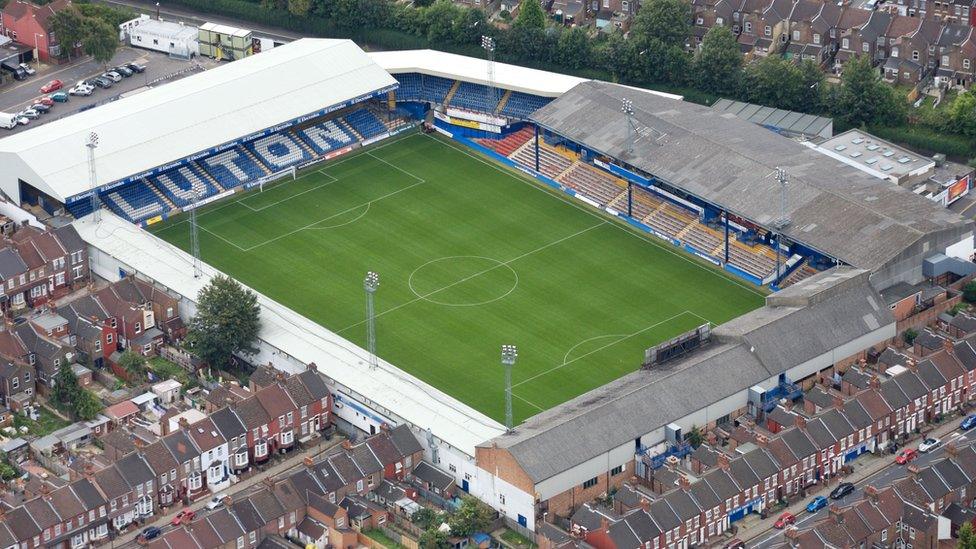
Luton's Kenilworth Road stadium is right in the heart of its local community
Like the police force, football expert Dr David Webber is suspicious of any suggested link between Luton's promotion and the drop in crime.
"I suspect you can read what you want into these figures," says Dr Webber, a senior research fellow and football studies lecturer at Solent University in Southampton.
"At the same time I am a massive believer in football being able to produce improvements in local communities. It is a kind of social glue."
And he does feel the Hatters' route to the Premier League - having climbed from non-League football and with no big financial backers - was something out of the ordinary.
"We almost always know, roughly, which team is is going to win the title each season - there is an inevitability about it," he says.
"Luton, however, completely flips this - they did it the hard way."
Despite the near-impossible task of proving it, he says it is possible that the club's journey last year made some people less likely to commit a crime.
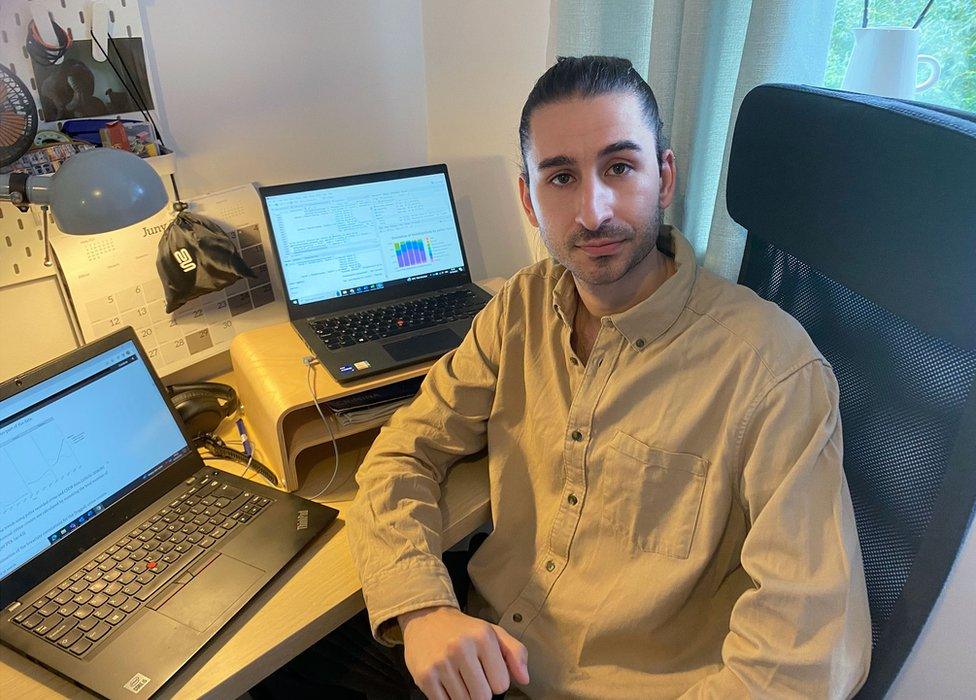
Quantitative criminologist David Buil-Gil says a suggested link between football success and a drop in crime is a "beautiful idea" that has him intrigued
Another expert, Dr David Buil-Gil, a senior lecturer in quantitative criminology at the University of Manchester, says: "It is a beautiful idea, and it is possible.
"As a football fan myself - Barcelona - I know football brings joy and it can bring tears."
He says a vast trove of research has established links between crime and a variety of social and economic factors.
So, if poverty and a lack of social cohesion can increase crime, is it not possible that football success might reduce it?
A self-described methodologist, Dr Buil-Gil says the starting point is to look at the numbers and acknowledge that crime data is a "human construct" that can be influenced by changes in policy or recording practices over time.
"The next thing is to look further," he says. "Has crime just fallen in Luton or more widely, across the whole of Bedfordshire or further afield?"

Looking at the same three-year period across all of Bedfordshire, overall crime in 2022-23 did drop, both year-on-year and compared with two years ago.
However, not the drop is not as pronounced as in Luton, and when Luton is removed from the Bedfordshire data, year-on-year crime actually increases during four of the 12 months.
Dr Buil-Gil says a longer time frame would be needed in order to look for trends and blips.
And even if there were signs that promotion had played some role in its reduction in crime, he says, has anything similar been found anywhere else?
The BBC asked Leicestershire Police what happened to the crime level in Leicester during the city's Premier League winning run in 2015-16.
The force's press office said it did not have any statistics to hand and that nothing was brought to its attention either at the time or since.
As for Dr Buil-Gil, he says both the football-crime question and the intellectual journey that would be required towards providing a credible answer has him intrigued.
So intrigued, in fact, that he might offer up the Luton Town question for some of his students to grapple with.

Follow East of England news on Facebook, external, Instagram, external and X, external. Got a story? Email eastofenglandnews@bbc.co.uk, external or WhatsApp us on 0800 169 1830
Related topics
- Published1 September 2023
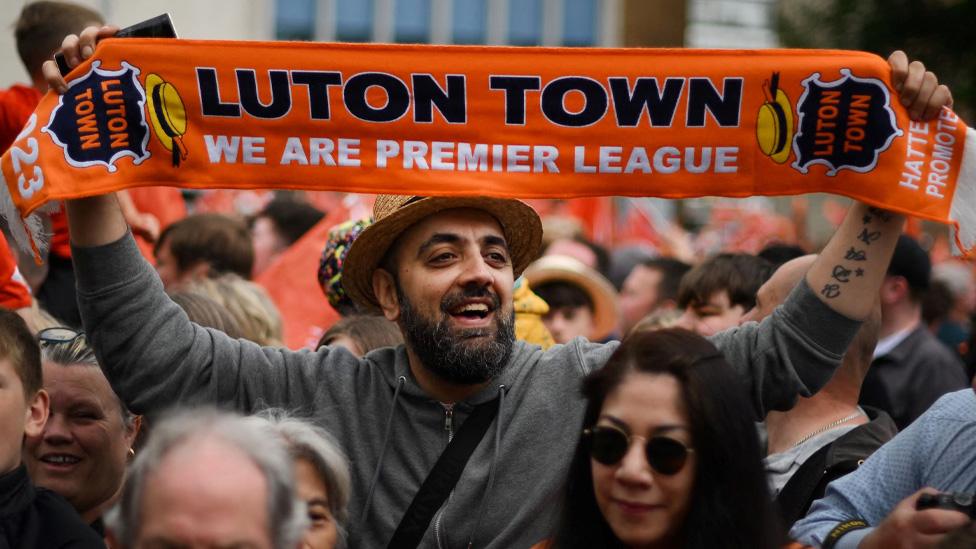
- Published27 May 2023
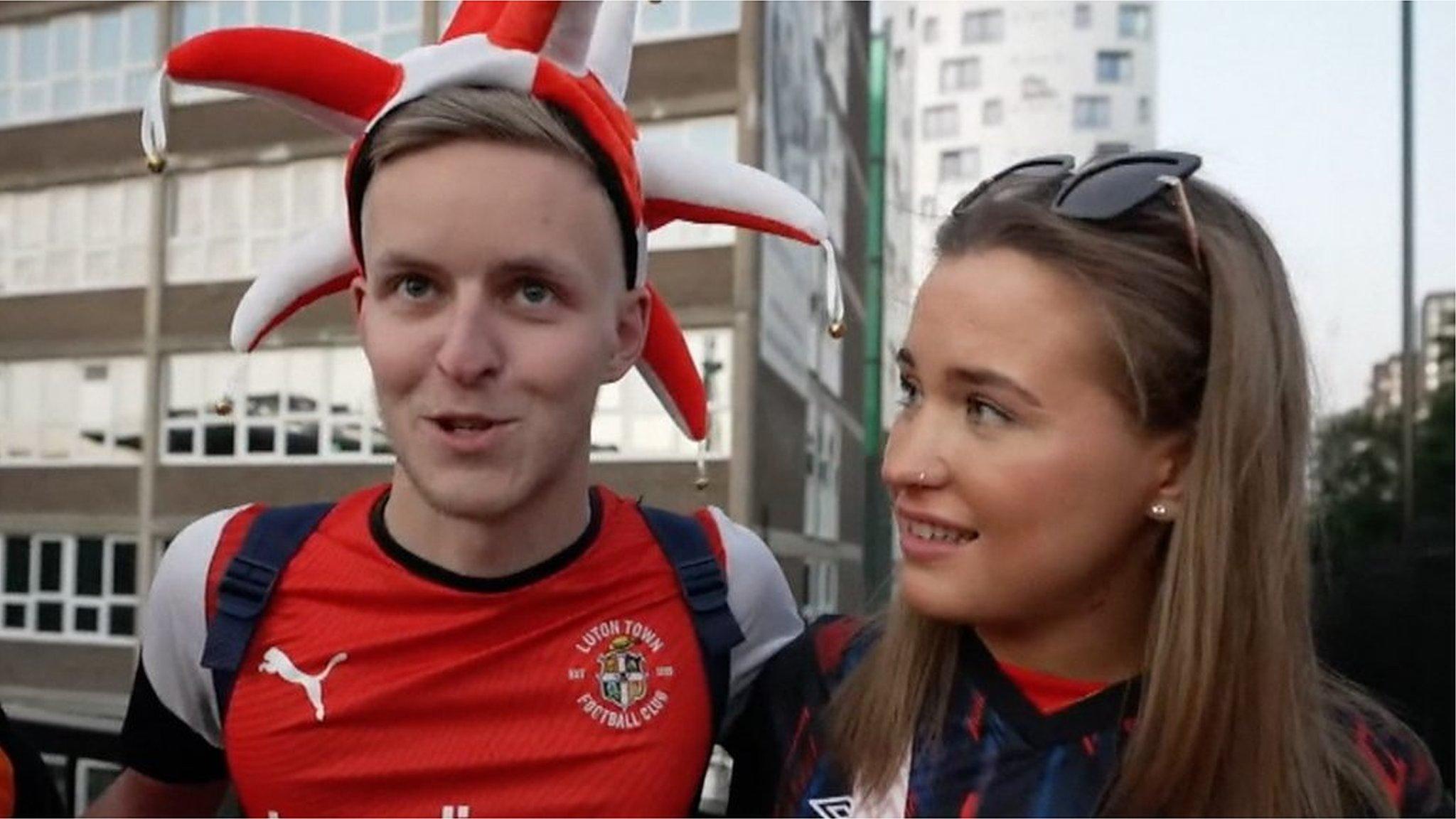
- Published26 May 2023
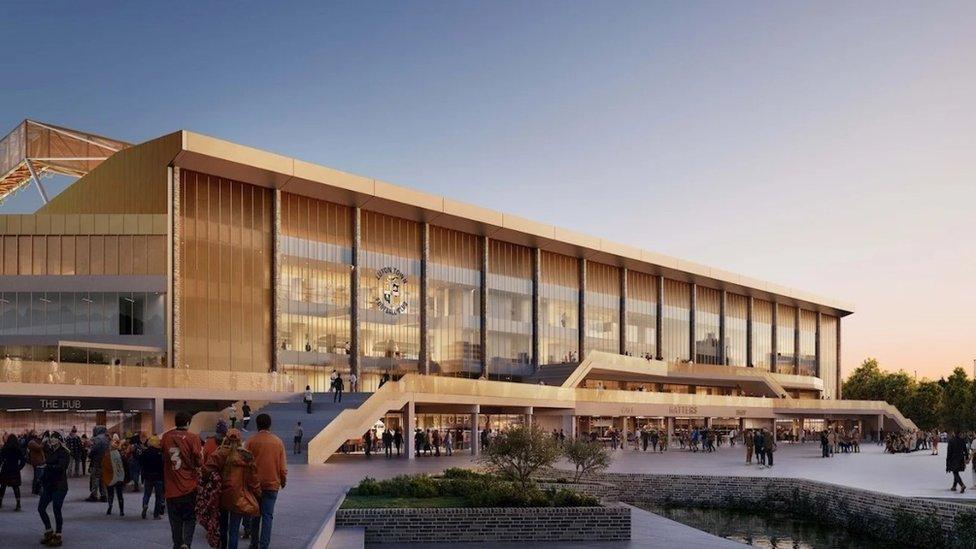
- Published24 May 2023
